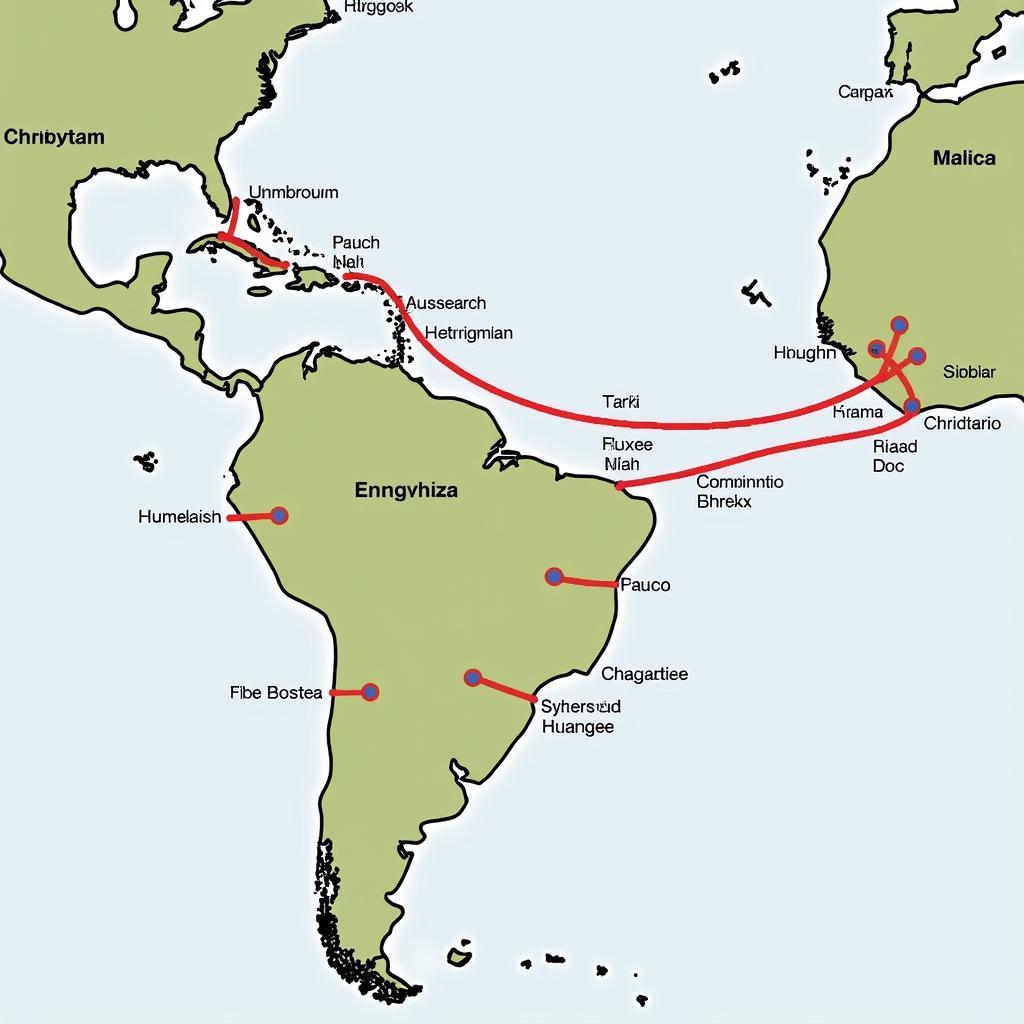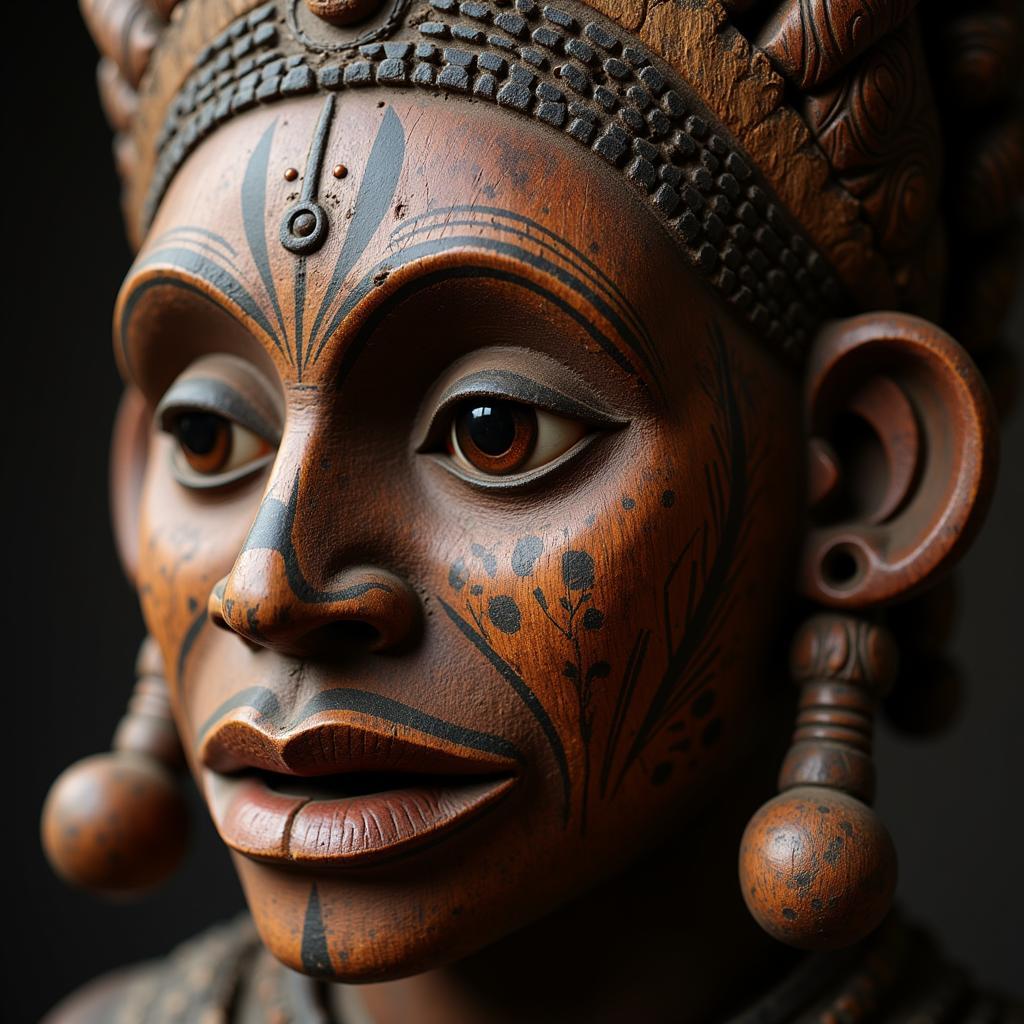The African Diaspora Timeline: A Journey Through History
The African diaspora, a term encompassing the mass dispersion of people of African descent across the globe, is a complex and multifaceted phenomenon spanning centuries. This African Diaspora Timeline offers a glimpse into the significant events and movements that have shaped this intricate tapestry of human experience. From forced migrations to voluntary journeys, the diaspora has left an enduring legacy on cultures, societies, and identities worldwide.
Early Migrations and the Transatlantic Slave Trade (15th – 19th Century)
The African diaspora timeline begins long before the transatlantic slave trade, with evidence pointing towards early migrations out of Africa dating back millennia. However, it was the transatlantic slave trade that dramatically intensified the movement of Africans across the globe.
Beginning in the 15th century, European powers, driven by colonial ambitions and the demand for labor in the Americas, engaged in the systematic enslavement and transportation of millions of Africans. This period, marked by unimaginable brutality and suffering, witnessed the forced displacement of generations of Africans to the Americas and the Caribbean.
 Map of the Transatlantic Slave Trade
Map of the Transatlantic Slave Trade
The transatlantic slave trade had a devastating impact on Africa, decimating populations, tearing apart families, and disrupting social and economic structures. Yet, despite the horrors they endured, enslaved Africans demonstrated remarkable resilience, preserving their cultural heritage through music, language, and religious practices.
Abolition, Resistance, and Early Diaspora Communities (18th – 19th Century)
The 18th century saw the rise of abolitionist movements in Europe and the Americas, challenging the morality and legality of slavery. These movements, fueled by the tireless work of abolitionists, both Black and white, gradually gained momentum, leading to the abolition of the slave trade in major European powers by the early 19th century.
Resistance to slavery took many forms, from individual acts of defiance to organized rebellions. Enslaved Africans fought back against their oppressors, staging uprisings and escaping to form independent communities, such as the Maroons in Jamaica and Suriname. These acts of resistance played a crucial role in weakening the institution of slavery and paving the way for eventual abolition.
The abolition of slavery in the Americas and the Caribbean in the 19th century marked a turning point in the African diaspora timeline. Newly emancipated Africans faced the daunting task of rebuilding their lives and forging new identities in societies still grappling with the legacy of slavery.
Post-Emancipation Movements and the Rise of Pan-Africanism (19th – 20th Century)
The post-emancipation period witnessed a flourishing of Black intellectual thought and activism. Across the diaspora, individuals and organizations emerged, dedicated to advancing the rights and self-determination of people of African descent. Pan-Africanism, a movement advocating for the unity and solidarity of Africans worldwide, gained traction during this era.
Figures like Marcus Garvey and W.E.B. Du Bois played instrumental roles in shaping Pan-Africanist ideology and mobilizing the diaspora around issues of racial equality, political liberation, and economic empowerment. The movement found expression in various forms, from literary and artistic movements celebrating Black identity to political organizations advocating for independence in colonized African nations.
The Civil Rights Movement and the Struggle for Equality (20th Century)
The 20th century saw the African diaspora deeply engaged in the fight for civil rights and social justice. The Civil Rights Movement in the United States, a landmark struggle against racial segregation and discrimination, drew strength and inspiration from the experiences of Black communities across the diaspora.
Leaders like Martin Luther King Jr., Malcolm X, and countless others led the charge for equal rights and opportunities, challenging systemic racism and inspiring generations to fight for a more just and equitable world.
Contemporary Diaspora and the Ongoing Quest for Identity (21st Century)
The African diaspora in the 21st century is a dynamic and diverse tapestry, shaped by historical experiences, cultural exchanges, and ongoing dialogues about identity and belonging. The rise of globalization and technology has further interconnected people of African descent, facilitating communication, collaboration, and the sharing of cultural expressions.
From music and fashion to literature and academia, the African diaspora continues to make significant contributions to global culture and thought. The ongoing quest for identity and belonging remains a central theme for many, as individuals and communities navigate the complexities of living in between cultures and continents.
The African Diaspora Timeline: A Legacy of Resilience and Transformation
The African diaspora timeline is a testament to the resilience, creativity, and enduring spirit of people of African descent. Despite the challenges and injustices they have faced, they have made profound contributions to the world, enriching cultures, advancing human rights, and shaping the course of history.
FAQs about the African Diaspora
What is the African diaspora definition?
The African diaspora refers to the communities descended from native sub-Saharan Africans who were dispersed throughout the Americas, Europe, and other parts of the world during the transatlantic slave trade. You can learn more with this African diaspora definition quizlet.
What are some of the lasting impacts of the African diaspora?
The African diaspora has had a profound impact on various aspects of global culture, including music, dance, food, language, and religious practices.
What are some of the challenges faced by the African diaspora today?
Contemporary challenges include navigating issues of identity, confronting racism and discrimination, and addressing socioeconomic disparities.
Exploring Further
To learn more about the African diaspora, explore these related topics:
This African diaspora timeline is just a starting point for understanding this vast and complex topic. Continued exploration and engagement with the diverse histories, cultures, and experiences of the African diaspora are crucial for fostering a deeper understanding of our interconnected world.
Need support? Contact us at Phone Number: +255768904061, Email: kaka.mag@gmail.com Or visit us at: Mbarali DC Mawindi, Kangaga, Tanzania. We have a 24/7 customer support team.



